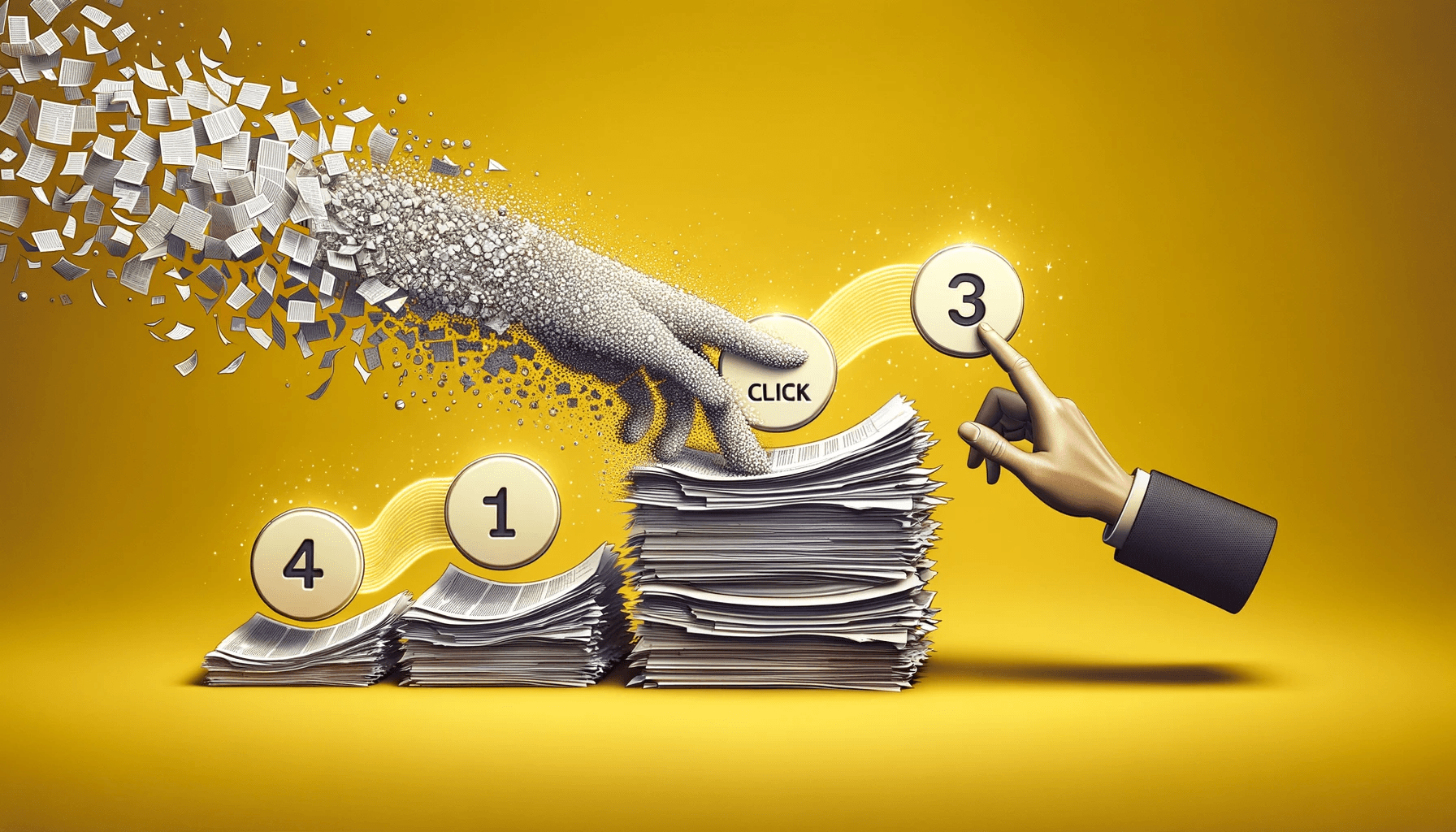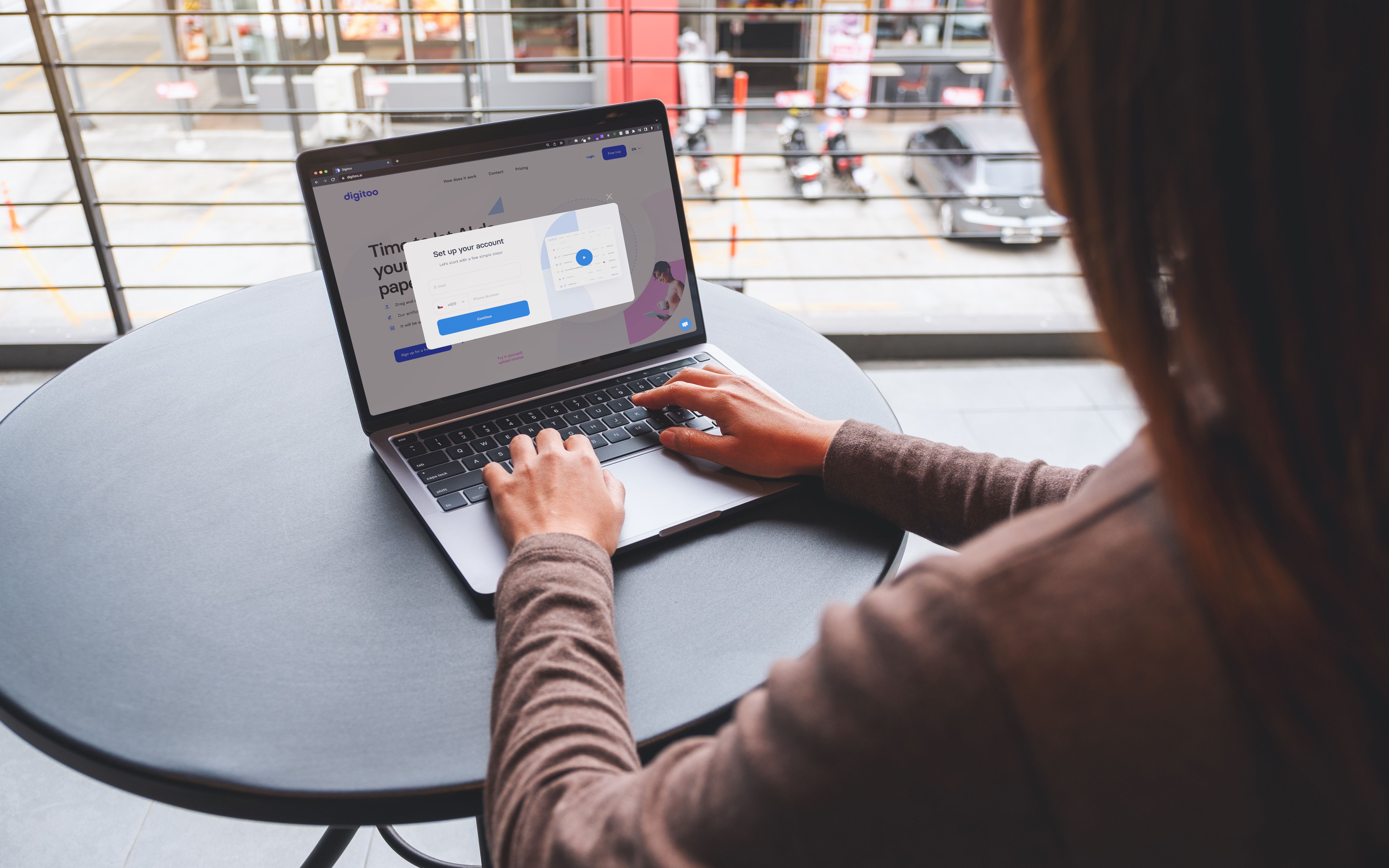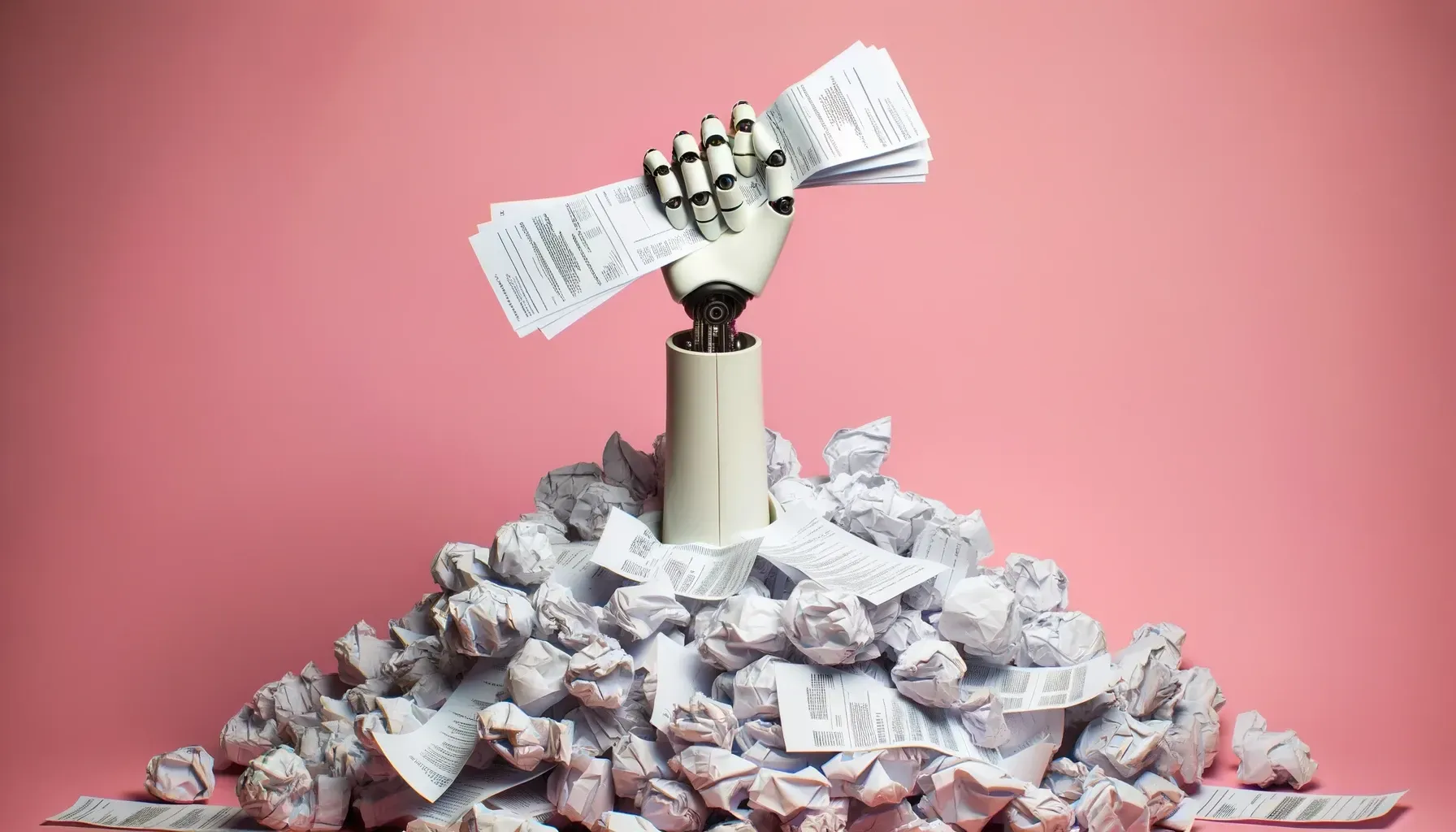Elon Musk is planning a colony on Mars, but the accounting is still in the paper age.

However, such a basic thing as "digitising the invoice" has not been solved. Unnecessary paperwork is still an issue today - 97% of companies in the Czech market are dealing with the problem of paper invoices. Accountants are sacrificing a lot of time with unnecessary routine activities such as scanning, sorting mail, manually transcribing invoices into the accounting system - specifically up to 87% of their workload.
How the accounting has worked so far?
Even in the 21st century, accounting still involves a ridiculous amount of manual work. This can be a problem in several places; because of low unemployment, accounting firms have a hard time recruiting new employees for traditional accounting positions, and recent college graduates are often no longer interested in such positions. Young people do not want to spend their time retyping invoices and going through routine processes. Companies are also not fully utilising the potential of their existing employees, who themselves spend a large part of their time on accounting.
Companies will be forced to create an environment in which the education and potential of graduates or existing employees can be used.
Now, just a quick bit of information about the invoice process and how it is unnecessarily complex. The accountant receives the invoice in two ways - 58% of the time on paper and 42% of the time via email. For some larger businesses, this is a significant burden and they need to have a dedicated position to sort the email or scan the invoices themselves. Invoices are then archived, run through initial filing, printed for physical signatures and passed on to other departments to fill in additional information such as centres. Invoices are then entered into the register to keep a general overview of the status of all invoices. It is only after this step that the accounting department gets hold of the invoice, which often may not turn out well as often some invoices get lost in the process and do not reach the accounting department at all. If this happens, the lengthy process is still not over - it very often takes up to 45 minutes to enter a single invoice into the accounting system, which is very inefficient and demotivating.
The digital divide for SMEs
While it is true that digital accounting already exists for large corporations, no suitable solution for SMEs has yet been introduced. There are 400,000 legal entities on the market, of which 1% are enterprise clients and the rest are SMEs. There are several culprits. All current solutions only solve some parts of the accounting process. Therefore, if a client wants to automate their accounting process, they have to pay for every integration that covers that section.Most accounting systems are very outdated, so connecting these new, modern solutions tends to be very expensive and takes a very long time.
Money, money, money
With manual invoice processing, there are also higher financial costs. Especially in accounting, it is necessary to have qualified employees, whom you have to pay. There is a relative shortage of these people in the labor market, often due to low motivation, which was mentioned at the beginning. As soon as your company starts to grow, the lack of good accountants can hinder your company's growth. A frequently overlooked cost is the storage of all invoices, which by law must be kept in the company for at least five years. With improper storage, some documents can be lost, which can lead to even higher costs. It's not just about costs related to the work of accountants, but also administrative costs associated with preparing documents for accountants, their records (usually in excel), managerial time, and there are also hidden costs related to printing and storage - the total cost of processing one invoice can be up to 590 CZK. Added to this are the costs of postage or the recovery of lost documents.
Environmental impacts
The problem of manual accounting is not only a waste of time and money. It also affects the environment. Too much paper is currently being used - leaving an ecological footprint in the form of deforestation. Today, ecology is a very topical issue and we need to pay more attention to the planet. Reducing paper consumption will not only help your company, but also the environment.
Everybody doesn't know everything
Management often does not have all the information and receives it only three months late, they do not get the information they need in real time. Therefore, management or the accounting firm's client resorts to its own internal records outside the accounting system. This leads to a duplication of work and both parties spend a lot of time on the documents.
Accounting firms, in an attempt to offer a solution to the client, often direct their clients to their accounting systems - but the accounting systems are often outdated, not very user-friendly, target primarily accounting needs such as government reporting for proper taxation, not simple record-keeping needs for managers.
A smarter way to digitalise
How is Digitoo different? Digitoo is an online accounting digitization application that uses artificial intelligence to read invoice data and export it directly into the accounting system. Digitoo can also retrieve the invoice in a structured form as an ISDOC, ensuring 100% data accuracy. Digitoo's solution includes processes such as invoice approval, we also prepare payments directly from the app and basic reporting for managers. We are the first and only end-to-end solution on the market.
Accounting systems are geared to the needs of proper taxation by the state, but they do not usually address the way in which input data is entered into them or the accessibility and clarity of accounting for managers.
At the same time, the accounting systems are built on old technologies, in old programming languages, and so their connection to the new technologies is complicated. (The new technologies, unlike the old ones, use so-called APIs (Application Programming Interface) that allow easy connection and transfer of data between applications).
Accounting systems, however, handle a large part of the company's agenda, so it is almost unthinkable to go for a more modern solution. That is why we do not try to replace accounting systems but only to digitalize the entire invoicing process up to the accounting system.
Digitoo's solution therefore eliminates manual and time-consuming processes associated with invoicing across the entire company, such as:
- Sorting mail
- Scanning paper invoices
- Archiving and tracking invoices
- Manually transcribing invoices
- Posting and approving invoices.
Standard invoice cycle in the company:
Digitoo leverages knowledge of accounting systems and accounting processes to properly integrate into the accounting system, while creating a user-friendly environment to simplify the entire process. Creating an account in Digitoo and connecting to your accounting system takes barely a few minutes. With our solution, everything is faster and there is no need to wait up to six months to automate your accounting.
Our solution is fully cloud-based, so there's no need to be tied to a specific computer.There's no need to worry about your valuable data being leaked, as everything is protected by the reliable Google Drive technology. In addition, this type of solution does not cost any additional costs. Integration into your business is very quick and, above all, simple and there is no need for long training sessions.
How our AI works
Our AI consists of several layers of neural networks. First, we use what's called OCR (optical character recognition), which can recognise characters - so when it looks at an invoice, it can recognise what the letters and numbers are. The next layer delimits these characters in logical groups. The last layer is deep learning. It is given a so-called dataset (i.e. a huge number of invoices that have been manually annotated by a team of people), it "reads" the data from that dataset, and then it can decide what each box means based on that data.
Save your wallet!
But Digitoo saves not only time with transcription, but also money. Until now, only large corporations could afford to digitize their accounting, so it was out of the question for small and medium-sized enterprises. But with Digitoo, automated accounting is more than twice as cheap as traditional accounting - see chart.
Conclusion
Artificial intelligence is therefore no threat to accountants. On the contrary, it helps it to develop its potential in that, in addition to unnecessary paperwork, it can alert senior management to errors in accounting or suggest tips for improvement.



